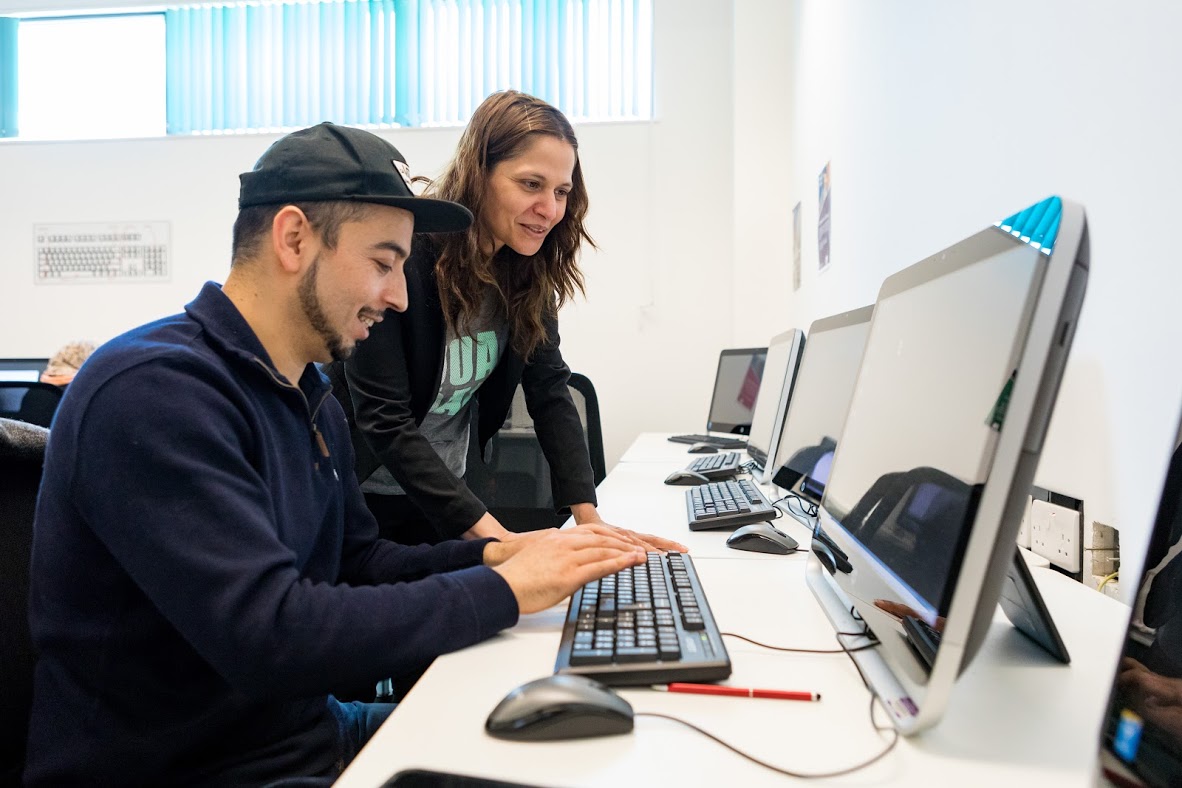My QTLS experience: Lee Norton
What motivated you to undertake Qualified Teacher Learning and Skills (QTLS)?
I have worked in the Education and Training sector for over ten years, initially supporting Adult Literacy and Numeracy learners with Learndirect e-learning courses, and later moving onto Functional Skills class-based teaching. In 2019-21, I studied the Level 5 Diploma in Education and Training to develop my teaching practice, and afterwards, became motivated to gain professional recognition as a qualified teacher within the sector. I undertook the professional formation programme to pursue this.

How did you find the process and what did you like about it?
The process was a bit daunting while deciding what skills to develop. Unlike a formal qualification, QTLS offers free choice regarding what areas you decide to develop, so long as they fall within the Professional Standards. Once I knew what I wanted to work on, however, I found the experience to be very motivating and was surprised at how much I enjoyed developing my practice in areas which I found challenging. I found QTLS enabled me to apply theory to teaching in a more practical sense than teacher training, which helped me to develop my skills further.
What has undertaking QTLS taught you about yourself?
During professional formation, I discovered I had the unfortunate tendency to “skip to the end” where teaching. This meant that scaffolding and modelling were not always my stronger points.
Following this, my peers encouraged me to research Rosenshine’s Principles of Instruction. This has since been an invaluable tool for me, helping me to break down English and mathematical concepts into more manageable steps for my learners, while reminding me to continuously review their progress. As a result of this, I now feel much more “in-tune” with my learners’ development and feel more relaxed digging deeper into the “details” of a topic than previously.
What impact has QTLS had on your practice and learners?
Previously, much of my confidence had lain with teaching Level 1 and 2 Functional Skills English and I felt far less confident teaching Entry Level learners. Subsequently, much of my CPD focused on observing colleagues teaching English Basics and ESOL. By observing my colleagues’ lessons, I learned to explain spelling strategies and grammatical concepts in more depth, while using scaffolded questioning, discussion and quizzes to reinforce learning. While incorporating these skills into my own teaching, learners could be observed visibly discussing ideas and reflecting further on what was being taught. Rapport and engagement have grown considerably where teaching Entry Levels and it has been fantastic to see the learners’ confidence growing.
What impact has QTLS had on your organisation?
Adult Learning runs Functional Skills English and maths courses at mixed levels across Norfolk. For a long time, our English course in Cromer did not have a post-pandemic home and was taught online. This, in my opinion, is not always the best delivery method for teaching Entry Level learners. In September, we returned to teaching in the Merchant’s Place venue where most of the group were Entry Level learners. Fast-forward six months, our students have “gelled” together as a class, are happily engaged and look forward to their lessons. I do not believe the level of engagement would have been reached without much of the advice and reflective practice gained during the professional formation. In particular, learning how to model, scaffold and review learning has been a great help for keeping students engaged and checking that the taught content is level-appropriate.
What are you going to do next and how will you continue to develop your practice?
I am beginning to teach GCSE English Language from September alongside Functional Skills. To help me prepare, I have signed up for the ETF’s next Teaching GCSE English: Develop your practice Level 5 module. I am looking forward to learning about current research and practice which can help me to motivate and inspire GCSE students.
What advice would you give teachers/trainers who are thinking of undertaking QTLS?
For QTLS, it can be difficult to decide what areas to focus on for the professional formation as there are many areas you can explore within the Professional Standards. It is important during this time to discuss your practice and seek advice from your network, whether the person who leads your department’s curriculum, an experienced colleague or someone from your own learning and development department. Without the support and mentorship of my curriculum lead, Kathy Shaw, and former Level 5 Diploma in Education and Training tutor, Julia Musson, I would have struggled momentously deciding what to work on and lost out from some invaluable advice throughout my QTLS journey.
Finally, please tell us a fun fact about yourself!
I am a brown and white belt student of Shotokan karate and regularly take part in our dojo’s competitions. I have a growing collection of bronze medals – usually given as consolation prizes for entering… and not getting very far… One day it is my hope to get a silver medal where there are more than two entrants in my grade and age category.

CHECK YOUR ELIGIBILITY AND APPLY FOR QTLS QTLS - Professional Formation
QTLS is the badge of professionalism for post-14 education and training. It’s aimed at helping you advance your career and to demonstrate your expertise and experience to your colleagues, employers and learners.

